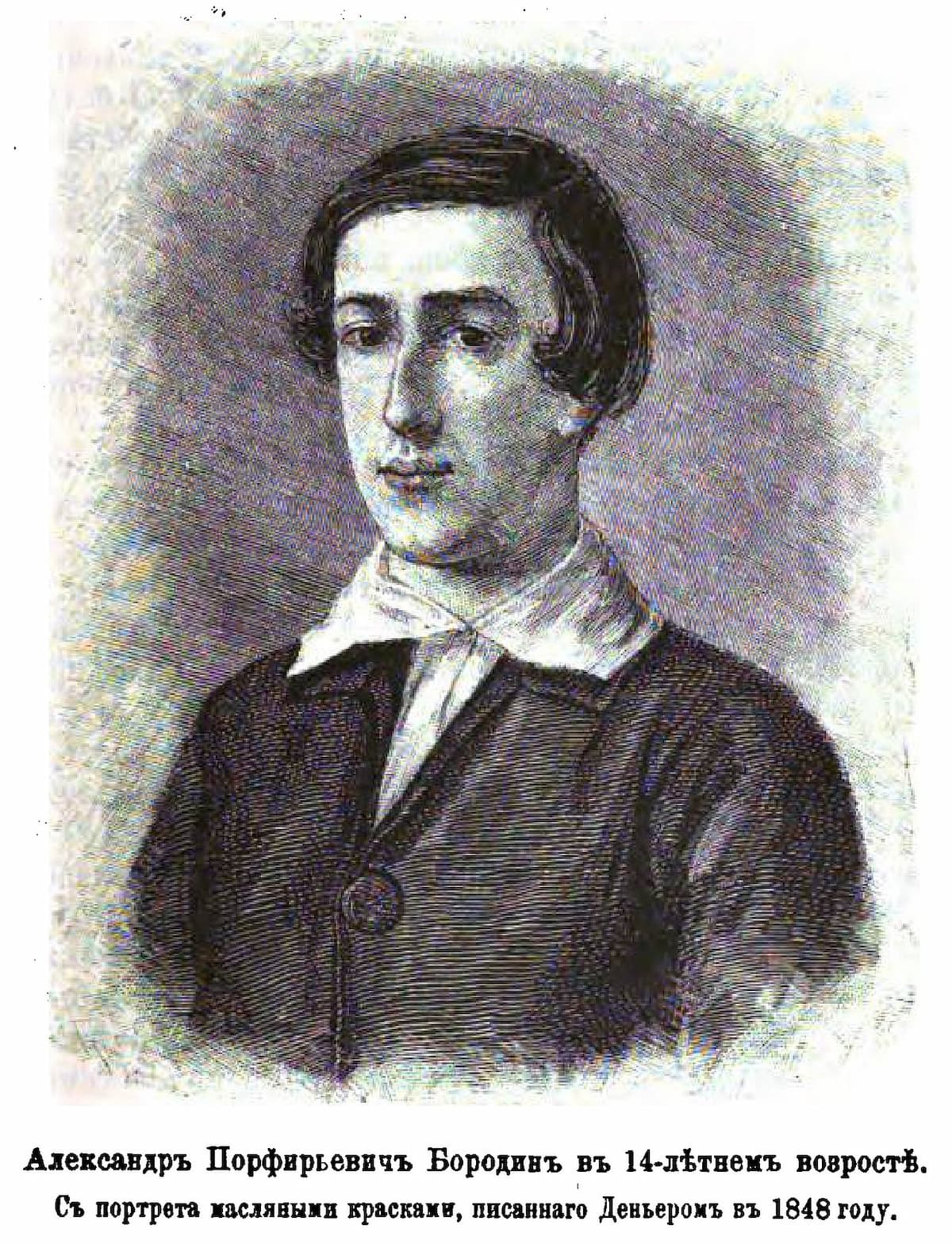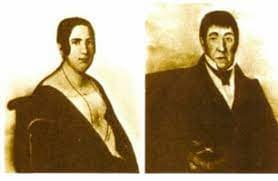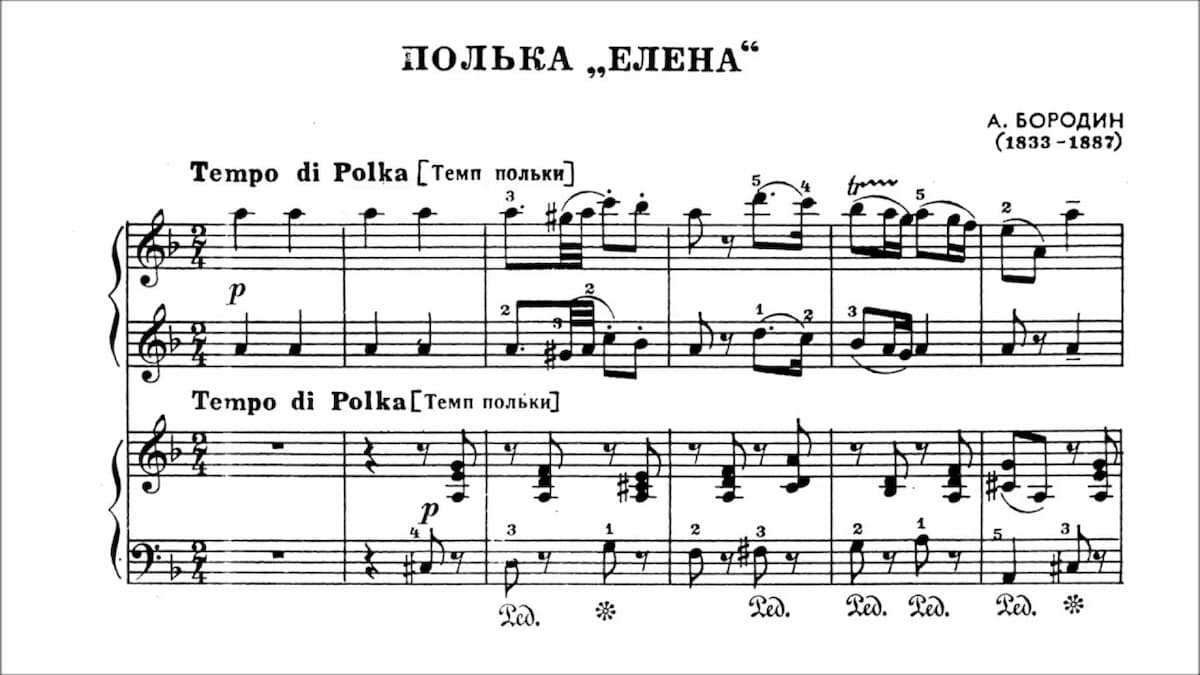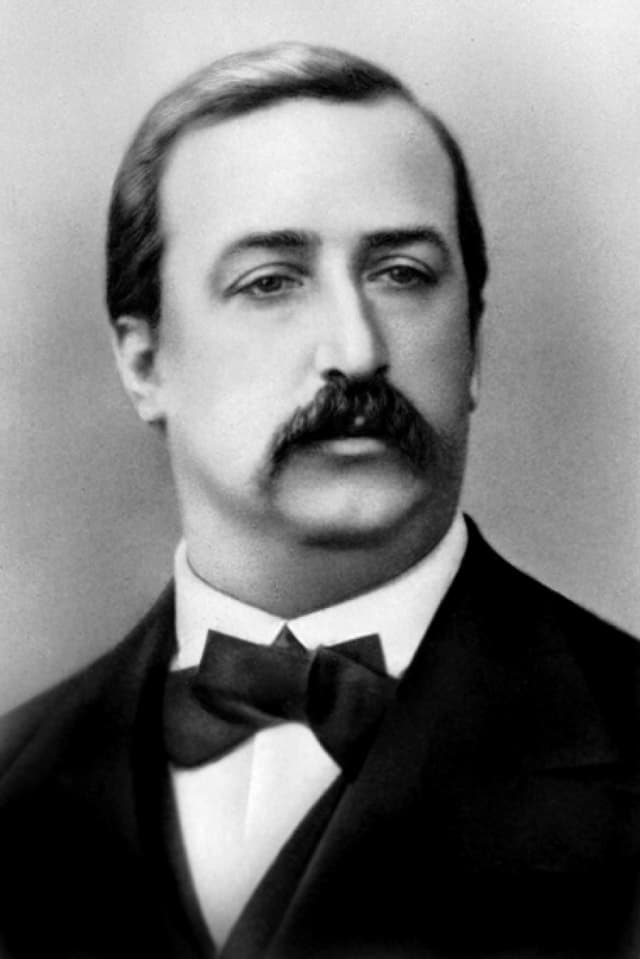Alexander Borodin, born on 12 November 1833 in St. Petersburg, came from a noble bloodline. He was the illegitimate son of the 62-year-old Georgian Prince Luka Stepanovich Gedevanishvili, and a 25-year-old Russian woman, Evdokia Konstantinovna Antonova. As was customary at the time, the nobleman had his son registered as the son of one of his Russian serfs, by the name of Porfiry Borodin.

Borodin at age 14
Alexander Borodin: String Trio in G Major (Moscow Trio)
Family Lineage
His paternal father was financially secure, and we know that he led a colourful life during his youth. He joined a Musketeer Regiment, got married, and inherited a good bit of land, including the village of Perovo on the outskirts of Moscow. He was a religious man but desperately unhappy in his family life. As such, he had an extended love affair with Borodin’s mother, who came from a family of soldiers and administrators. Apparently, Luka met her first at a dance, and they shortly thereafter moved in together into Luka’s apartment in St. Petersburg.

Alexander Borodin’s parents Avdotya Konstantinovna Antonova and Luka Stepanovich Gedianov
In the eyes of the law, Alexander was born a serf himself, but thanks to Luka’s affection for his mother, the boy had a privileged childhood nevertheless. His mother passionately loved him, although she never officially recognized him as her son and always referred to herself as his auntie. As Luka was getting on in age, he wanted to secure a respectable future for his lover and son, and he arranged a marriage for her with a retired army medical man. On the occasion, Luka presented them with a four-storied house or at least gave her the money to purchase it.
Alexander Borodin: Paraphrases (Marco Rapetti, piano; Daniela de Santis, piano)
First Musical Experiences
The first reliable information we have of young Borodin dates from around 1840. Apparently, he was a sickly and highly-strung, yet at the same time, a very likable child. He was described as “a wonderful child, attractive to look at, but of an unusually gentle and placid disposition.” And from his early days, Borodin had shown signs of musical talent, and he pretended to be an organ grinder while improvising stage plays for his mother. His first composition, a polka for piano titled “Hélène”, was written at the age of nine.

Alexander Borodin: Hélène-Polka
Once the family had moved to a new house near a Regiment’s parade ground, Borodin would listen spellbound to the regimental band and enjoyed picking out the tunes at the piano at home. Noticing his obvious interest, his mother hired a flutist to give him flute lessons, and subsequently, he took piano lessons from a German musician named Pormann. According to biographers, “he was a very patient and painstaking man, but not very sensible when it came to teaching.”
Alexander Borodin: “The Beautiful Fisher Maiden” (Konstantin Pluzhnikov, tenor; Irina Molokina, cello; Yuri Serov, piano)
First Attempts at Musical Composition
Borodin’s mother had accepted a boarder, Mikhail Shchiglev, musically talented and about her son’s age. The boys played piano duets and four-hand arrangements of symphonies by Haydn, Beethoven, and Mendelssohn. They also attended the university concerts during the winter and travelled to the suburb of Pavlovsk to hear a dance orchestra of the Hungarian conductor and composer Johann Gungl. While Shchiglev taught himself to play the violin, Borodin taught himself the cello. He composed a number of string compositions and wrote salon music. The “Adagio Patetico” was published in 1849 and reviewed favourably.
Alexander Borodin: “Adagio patetico” in A-flat Major (Marco Rapetti, piano)
Even before his first attempts at musical composition, however, Borodin had a passion for chemistry. He first attempted to make fireworks, but it quickly developed into a more serious occupation. A biographer reports that by the time he was thirteen or fourteen, Borodin had built up for himself a complete laboratory at home. “This laboratory greatly alarmed his mother, who constantly complained about the foul smells and the risks of starting a fire.”
In 1850, just before turning 17, he entered St Petersburg’s Medical-Surgical Academy, the training ground for physicians in the tsar’s service.
Musical Chemistry

Alexander Borodin
Borodin threw himself wholeheartedly into his work at the Academy, studying botany, zoology, anatomy, and crystallography. To relax from his scientific work, however, Borodin continued to play chamber music. He also attended chamber music evenings at the home of the amateur cellist Ivan Gavrushkevich. Gavrushkevich encouraged Borodin to compose a string quintet of his own, but the resulting work was left with an incomplete finale and was finally published in a completion in 1960. Borodin graduated in 1856 with exceptional distinction, and he was posted to a military hospital where he met none other than Modest Mussorgsky, a then-newly commissioned officer in the Preobrazhenskiy Regiment.
For more of the best in classical music, sign up for our E-Newsletter
Alexander Borodin: String Quintet in F minor (Arcata Quartet; David Geber, cello)
